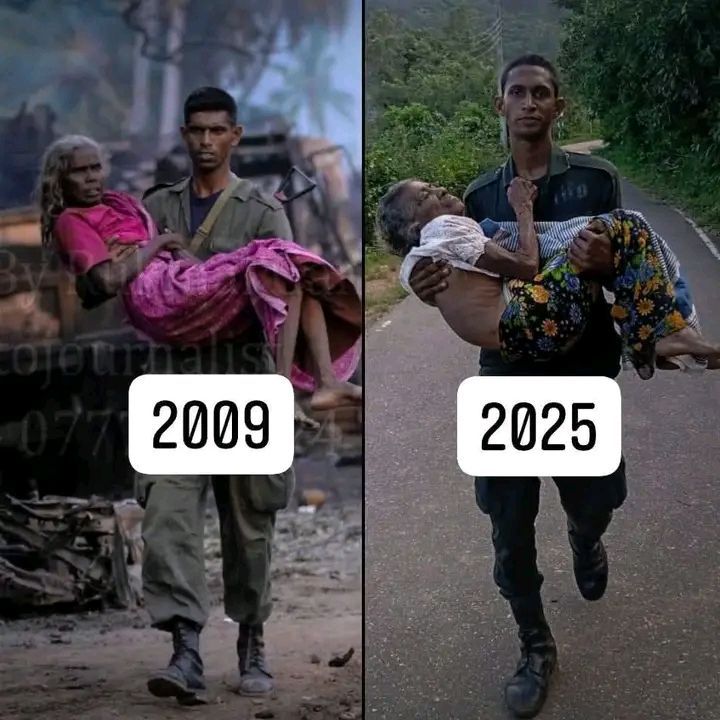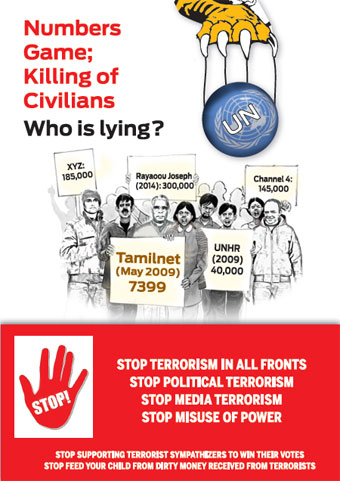The forthcoming UNGA sessions
According to media reports President Sirisena is planning to attend the forthcoming 73rd Session of the UN General Assembly, where he hopes to use the opportunity presented to amend the UNHRC Resolution 30/1 co-sponsored by the government. General Assembly sessions are normally occasions for broad policy statements. However, in the case of Sri Lanka presenting its case before the General Assembly is in order to bring to the attention of a world body such as the UN with nearly 193 members, the unique circumstances associated with Sri Lanka’s Armed Conflict unlike conflicts in other parts of the world. Such a unique approach is needed particularly because such relief is not possible with the UNHRC with only 47 members with a mandate that focuses on Human Rights, while the conflict in Sri Lanka being an Armed Conflict is clearly governed by International Humanitarian Law.
Although the nature and scope of the amended proposals the President hopes to present is not known at this time, it is reported that both the Secretary General of the UN and the High Commissioner for Human Rights would be presented with Sri Lanka’s proposals. The main thrust of the President’s proposals is reported to focus on restoring the pride and dignity of the security forces that were engaged in the Armed Conflict. This is of special importance because the present UN High Commissioner for Human Rights, Michelle Bachelet who is a citizen of Chile, was imprisoned during the dictatorship of Pinochet. Therefore, it would be natural for High Commissioner Bachelet to view conflicts from the perspective of her own experiences.
Under the above circumstances, it is imperative that Sri Lanka makes a strong case to bring to the attention of the UNHRC and in particular the entire UN body, that the conflict in Sri Lanka cannot be judged by the same parameters as what had happened in Chile, or in several past and present conflicts in other parts of the world which incidentally are Human Rights violations and which therefore would be judged under provisions of International Human Rights Law. The conflict in Sri Lanka on the other hand, was an Armed Conflict. This being the case, the applicable parameters for judging the conduct of the conflict is International Humanitarian Law.
THE FLAWED OISL PERSPECTIVE
The fact that the entire investigation conducted by the Office of the High Commissioner for Human Rights Investigations on Sri Lanka (OISL) was based on violations of International Human Rights, and is admitted by the following quoted from its report:
- INVESTIGATIONS BASED ON VIOLATIONS OF HUMAN RIGHTS: Paragraph 4 states: “OISL’s mandate derives from Human Rights Council Resolution 25/1 which required OHCHR to ‘undertake a comprehensive investigation into alleged serious violations and abuses of human rights and related crimes by both parties in Sri Lanka’…”.
- DEROGATION OF HUMAN RIGHTS DURING EMERGENCY:
- Paragraph 175 state: “OISL notes that has submitted a Declaration of a State of emergency, dated 30 May 2000 derogating from articles 9 (2). 9 (3). 12 (1). 12 (2). 14 (3). 17(1).19 (2). 21. And 22of the ICCPR. Measures taken pursuant to derogation are lawful to the extent they comply with the conditions set out in international human rights law”.
- APPLICABILITY OF INTERNATIONAL HUMANITARIAN LAW:
Paragraph 182 states: “Article 3 common to the four Geneva Conventions relating to conflicts not of an international character is applicable to the situation in Sri Lanka… ”
Paragraph 183 states: “In addition, the Government and armed groups that are parties to the conflict are bound alike by relevant rules of customary international law applicable to non-international armed conflict”.
Therefore, by its own admission, if the conduct of the armed conflict is to be judged by International Humanitarian Law, why is the UNHRC holding Sri Lanka accountable for violations of Human Rights Laws? Had the UNHRC adopted the appropriate rules of International Humanitarian Law to judge the manner in which the armed conflict was conducted, the OISL report would have recognized the relevance of the principles of “distinction”, “proportionality” and “precaution” when evaluating what would amount to “violations”.
A glaring example of the disparities that exist when a “violation” is evaluated from a perspective of Human Rights violation as against International Humanitarian Law violation, is in regard to the delivery of drinking water, scarcity of food, sanitation and insufficient health care and medicines. While shortcomings in the delivery of humanitarian aid and relief is a serious violation when judged from a Human Rights perspective as reflected in the OISL report in paragraphs 981 and 982, it is NOT a violation from an International Humanitarian Law perspective, because under provisions of ICRC Rule 55 which states: “parties to the conflict must allow and facilitate rapid and unimpeded passage of humanitarian relief for civilians in need…and Rule 56 states:”parties to the conflict must ensure the freedom of movement of authorized humanitarian relief personnel essential to the exercise of their functions”.
It is crystal clear that what is claimed as a Human Rights violation in the OISL report for short falls in the delivery of humanitarian relief is NOT a violation under provisions of International Humanitarian Law, because parties to a conflict are not expected to deliver such aid to another party to the conflict. Instead, all that is expected is to permit access to relief agencies and nothing more.
Another charge is the death of “hundreds of thousands” of civilians. It is a well established fact that during the final stages of the conflict the LTTE violated the Principle of Distinction by shedding their distinctive military uniforms, thus blurring the distinction between civilians and combatants. This aspect is reflected in paragraph 1266 which states: “The LTTE caused further distress by forcing adults and children to join their ranks and fight on the front lines. The fact that the civilians were forced to remain in the conflict area by the LTTE and suffered reprisals if they tried to leave added to the trauma that they lived through”. Consequently, how one could realistically establish the number of bona fide dead civilians is next to impossible. This is stated in paragraph 1267 of the OISL report which states: “Counting or estimating the number of civilian casualties during the final stages of the armed conflict is impossible…..”.
FAILURE TO PRESENT SRI LANKA’S CASE
Despite several appearances before the UN Human Rights Council Sri Lanka has failed to make a strong case that the actions of the Security Forces should be judged by International Humanitarian Law. Consequently, Sri Lanka’s Army has stated that those who represented Sri Lanka in Geneva have failed to present the Army’s case in the correct perspective.
During the course of an interview, the Army Commander Lt. Gen. Mahesh Senanayake is reported to have stated: “The Sri Lanka Army (SLA) will also engage in fighting its own case now, with regard to allegations of war crimes…We want to clear our name…All these years we were depending on someone else. We thought they would tell our story”. For the Commander to expect a positive response to their story, and clear their name conclusively, their case should be presented on the basis of International Humanitarian Law. The statement by the Commander is however, a serious indictment on the capabilities of the Foreign Ministry both past and present, and all those who represented the government of Sri Lanka in Geneva.
This failure has resulted in UNHRC Resolution 30/1 compelling Sri Lanka to implement a whole array of recommendations in the name of Transitional Justice. The most serious of these is the one on Accountability.
These recommendations have not taken into account that some recommendations need involve amending Sri Lanka’s Constitution, while the issue of accountability by itself could seriously impact on communal relations because it would be next to impossible to undertake an accountability exercise that would ever meet the expectations of the communities concerned.
CONCLUSION
The President is hoping to use the opportunity presented at the 73rd sessions of the UN General Assembly to present a perspective that hitherto had not been presented by all those who represented Sri Lanka’s case in Geneva. While this represents a serious flaw on the part of those who were tasked to represent Sri Lanka’s interests in a credible manner, this task has now fallen on the shoulders of the President. It is hoped that the President would bring to the attention of the world body that the very basis of UNHRC Resolution 30/1 as mandated by the Human Rights Council is seriously flawed, because it is based on violations of Human Rights whereas it should be based on International Humanitarian Law as amply demonstrated above. Therefore, the President has every right to declare that Sri Lanka has been wronged, and that the accountability exercise demanded by Resolution 30/1 is inappropriate for any country following the cessation of an “Armed Conflict”, because it is realistically not possible to meet the expectations of all parties to a conflict. Instead, what follows is dissatisfaction and frustration by at least one of the parties to a conflict judging from the accountability exercises conducted in other countries, the most prominent being the one by South Africa. This would seriously impact on Communal Relations and lay the ground work for the recurrence of conflict. Therefore, the amendment sought should be to forego the accountability exercise and focus on Missing Persons and reparations for the victims of the conflict if Sri Lanka is to consolidate its hard won peace.
The failure of Sri Lanka to have an impact in Geneva is because of the perspective that issues relating particularly to accountability are politically motivated causing it to plead its case. This approach has failed Sri Lanka. The only credible approach is to adopt a professional approach that cannot be disputed.
By Neville Ladduwahetty
376 Viewers








